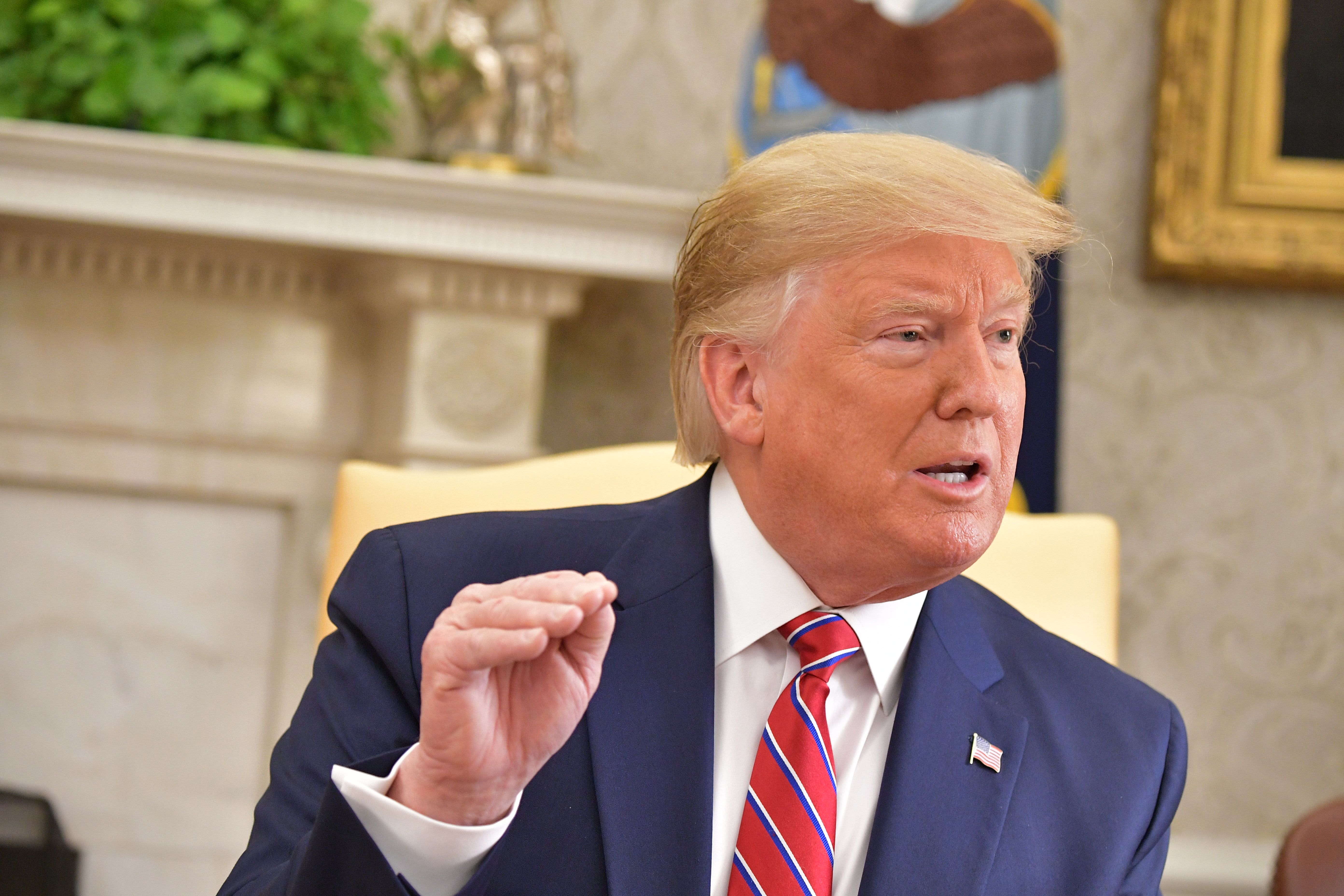Trump: If Iran blocks the Strait of Hormuz, 'it's not going to be closed for long' - 4 minutes read

US President Donald Trump speaks with Poland's President Andrzej Duda(not shown) as they take part in an Oval Office meeting at the White House in Washington, DC on June 12, 2019.
Mandel Ngan | AFP | Getty Images
President Donald Trump said Friday that if Iran were to block the Strait of Hormuz, "it's not going to be closed for long," but he did not elaborate on whether the United States had an obligation to keep open the international shipping gateway, which is critical to the oil industry.
"They're not going to be closing [the strait]," Trump said in response to a hypothetical question during a telephone interview on "Fox and Friends."
"They know it, and they've been told in very strong terms. We want to get them back at the table, if they want to go back," he said, referring to the administration's ongoing efforts to start bilateral negotiations on a new nuclear deal with Iran.
"I'm ready when they are, but whenever they're ready, it's OK. And in the meantime, I'm in no rush. I'm in no rush," he added.
Earlier this year, Iran threatened to close the strait in response to a U.S. decision to end waivers on reimposed sanctions for companies that export oil from Iran. However, analysts question whether closing the channel is feasible, given the large American naval presence in the strait and the portions of coastline that are controlled by Oman and the United Arab Emirates.
The president was responding to attacks Thursday on two oil tankers in the Gulf of Oman, south of the strait, for which the United States has blamed Iran. The Strait of Hormuz is a crucial maritime shipping channel that serves as a gateway for up to a third of all the world's tanker-carried crude oil and petroleum products.
Iran denies any involvement in the attacks. On Thursday, Iran's mission to the United Nations said in a statement: "Iran categorically rejects the U.S. unfounded claim with regard to 13 June oil tanker incidents and condemns it in the strongest possible terms."
But Trump and members of his administration, including Secretary of State Mike Pompeo, have left no doubt about whom the United States holds responsible for the attacks, citing video evidence they say shows members of Iran's Revolutionary Guard Corps removing an unexploded mine from one of the ships after it was ablaze.
"Iran did do it. That was the boat, that was them," Trump said.
Thursday's attacks were the second time in just over a month that ships have been attacked by forces the White House says are directly tied to the Iranian regime. On May 12, four tankers in the same area were attacked.
Nonetheless, Trump argued that Iran has "changed a lot since I've been president."
"They were unstoppable, and now they're in deep deep trouble," Trump said. He did not, however, explain the relationship between these apparently positive changes and the recent attacks, which have rattled international petroleum markets and raised the specter of armed conflict in the Middle East.
"When I came into office, they were an absolute terror, they were all over the place, they were in Yemen they were in Syria, we had 14 sites of conflict, and they were in charge of every single place. They were a nation of terror," Trump said.
The president claimed that the U.S. decision to pull out of the Iran nuclear deal last year and reimpose sanctions on Iran has had a positive impact by pressuring the Islamic Republic to return to the negotiating table in order to hash out a bilateral nuclear accord, something which has not happened yet.
Trump claimed without evidence that under the previous nuclear deal, Iran would have acquired nuclear weapons in "five or six years," adding, "They cannot have nuclear weapons, We have enough problems with nuclear weapons, which is one of the great difficulties of the world."
The president did not appear to have a ready answer to the question of how the United States intended to stop attacks like the ones on the two oil tankers.
"We're going to see how to stop these outrageous acts," Trump said in response to a question about what the United States intended to do next. "We'll see what happens, and we don't take it lightly, I can tell you that."